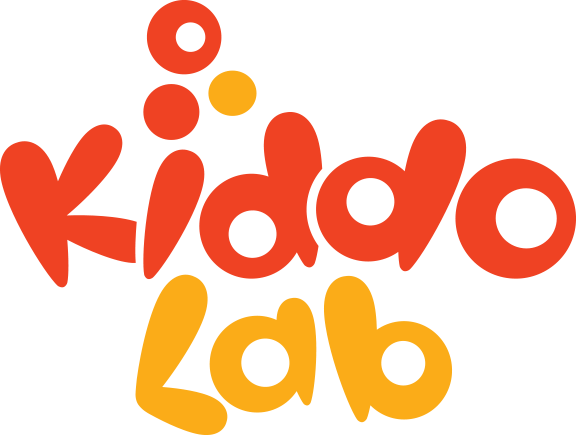Table of Contents
1. Introduction to Music and Child Development
2. The Power of Music in Early Childhood
3. Strategy 1: Daily Music Time
4. Strategy 2: Homemade Instruments
Introduction to Music and Child Development
Music plays a magical role in our lives, especially in the growth and development of children. From the lullabies sung to soothe infants to the playful nursery rhymes that teach and entertain, music is a universal language that enriches the young mind.
The Power of Music in Early Childhood
Understanding the impact of music on a child's development is key. It's not just a source of entertainment; music aids in cognitive development, improves social skills, and can significantly enhance emotional well-being.
Cognitive Benefits:
- Enhanced Memory: Music stimulates parts of the brain associated with memory.
- Language Skills: Songs improve vocabulary and comprehension.
Social and Emotional Benefits:
- Emotional Expression: Music allows children to express their emotions healthily.
- Social Interaction: Singing and dancing together can improve social skills.
Strategy 1: Daily Music Time
Establishing a daily music time can be a simple yet effective way to introduce your child to the world of music.
How to Implement:

- Set Aside Time: Dedicate a specific time each day for musical activities.
- Diverse Music: Play different genres to expose your child to various rhythms and melodies.
Benefits:
- Creates a routine around music.
- Encourages a love for different types of music.
Strategy 2: Homemade Instruments

You don’t need expensive instruments to start. Simple homemade instruments can be just as effective in introducing your child to music.
How to Create:
- Drums from Containers: Use old containers and pots as drums.
- Shakers from Bottles: Fill bottles with beans or rice to create shakers.
Benefits:
- Enhances creativity and innovation.
- Develops an understanding of rhythm and beat.
Strategy 3: Singing Together
One of the most natural ways to introduce music to children is through singing. It's a fun, interactive, and highly beneficial activity.
How to Implement:
- Sing Familiar Songs: Start with simple nursery rhymes or children's songs.
- Encourage Participation: Let your child choose the songs and sing along with them.
Benefits:
- Strengthens bond between parent and child.
- Improves language and memorization skills.
Strategy 4: Dance and Movement
Music and movement are intrinsically linked. Dancing to music is not only fun but also a great way to develop physical coordination.
How to Implement:

- Regular Dance Time: Create a fun routine where you and your child dance to music.
- Use Different Genres: Expose your child to various music styles through dance.
Benefits:
- Enhances physical development and coordination.
- Introduces rhythm and beat comprehension.
Incorporating Music into Everyday Activities
Integrating music into daily routines can make learning more enjoyable and less structured.
Everyday Musical Activities:
- Cooking with Music: Play background music during meal preparations.
- Musical Storytime: Use songs to narrate stories or create a musical reading session.
Benefits:
- Makes routine activities more enjoyable.
- Subtly introduces music into the child’s daily life.
The Role of Parents in Musical Education
Parents play a vital role in their child's musical journey. Your enthusiasm and participation can significantly influence their interest and development in music.
How Parents Can Help:
- Active Participation: Sing and dance with your child.
- Creating a Musical Environment: Play music at home regularly.
Benefits:
- Encourages a musical interest in children.
- Creates a positive and supportive learning environment.
Exploring Formal Music Education
Formal music education, such as music classes or lessons, can play a significant role in a child's musical journey. These structured experiences offer in-depth learning opportunities.
Benefits of Music Lessons:
- Structured Learning: Provides a systematic approach to learning music.
- Professional Guidance: Trained instructors can offer tailored guidance and support.
The Role of Technology in Musical Learning
In today's digital age, technology offers an array of tools that can enhance musical education for children.

Technological Aids:
- Educational Apps: Various apps are designed to teach music theory, instruments, and rhythm.
- Online Lessons: Virtual classes can be a flexible and convenient way to learn music.
Benefits:
- Makes learning more accessible and diverse.
- Encourages self-paced learning.
Encouraging Musical Exploration at Home
Creating a musical environment at home is crucial for nurturing a child's interest in music. This can be done through simple yet effective ways.
Tips for Parents:
-Musical Instruments at Home: Having accessible instruments encourages spontaneous play and exploration.
- Attend Live Music Events: Exposing children to live music performances can be inspiring.
Benefits:
- Fosters a natural curiosity about music.
- Provides real-life musical experiences.
Conclusion and Parental Guidance
In conclusion, introducing your child to music is a journey filled with discovery, joy, and numerous developmental benefits. From simple at-home strategies to formal education and the use of technology, there are various ways to nurture your child’s musical talents.
Final Tips for Parents:
- Patience and Encouragement: Every child's musical journey is unique. Be patient and provide constant encouragement.
- Lead by Example: Show your own interest and enthusiasm for music.
Embracing Music as a Tool for Growth
Music is more than just melodies and rhythms; it's a powerful tool for growth and development in children. This article has explored various ways to introduce music to your child, emphasizing its multifaceted benefits.
Summary of Key Strategies
- Daily Music Time and Homemade Instruments: Simple, everyday activities to spark a child’s interest in music.
- Singing and Dancing Together: Engaging in music through interactive and physical activities.
- Incorporating Music into Routine: Integrating music into daily life to create a naturally musical environment.
- Formal Music Education and Technology: Utilizing structured learning and digital tools for comprehensive musical education.
The Lasting Impact of Musical Education
Introducing your child to music can have a profound and lasting impact on their development. It enhances cognitive skills, emotional intelligence, and social abilities, laying a foundation for a well-rounded individual.
Long-Term Benefits:
- Improved Academic Skills: Music education has been linked to better performance in subjects like math and reading.
- Enhanced Emotional Well-being: Music allows children to express and understand their emotions.
- Boosted Self-esteem and Confidence: Learning and succeeding in music can be a significant confidence builder.
Conclusion and Encouragement for Parents
In conclusion, the journey of introducing your child to music is an enriching experience filled with opportunities for growth, bonding, and joy. Remember, your role as a parent in this journey is invaluable. Your enthusiasm, participation, and support can make a world of difference in your child's musical and overall development.
Final Encouragement:
- Stay Engaged: Take an active interest in your child's musical activities.
- Celebrate Progress: Acknowledge and celebrate every step of your child's musical journey, no matter how small.
Music opens up a world of possibilities for children, fostering creativity, enhancing learning, and nurturing emotional and social growth. By introducing your child to music, you are not only enriching their childhood but also setting them up for a lifetime of appreciation and enjoyment of this universal art form.


